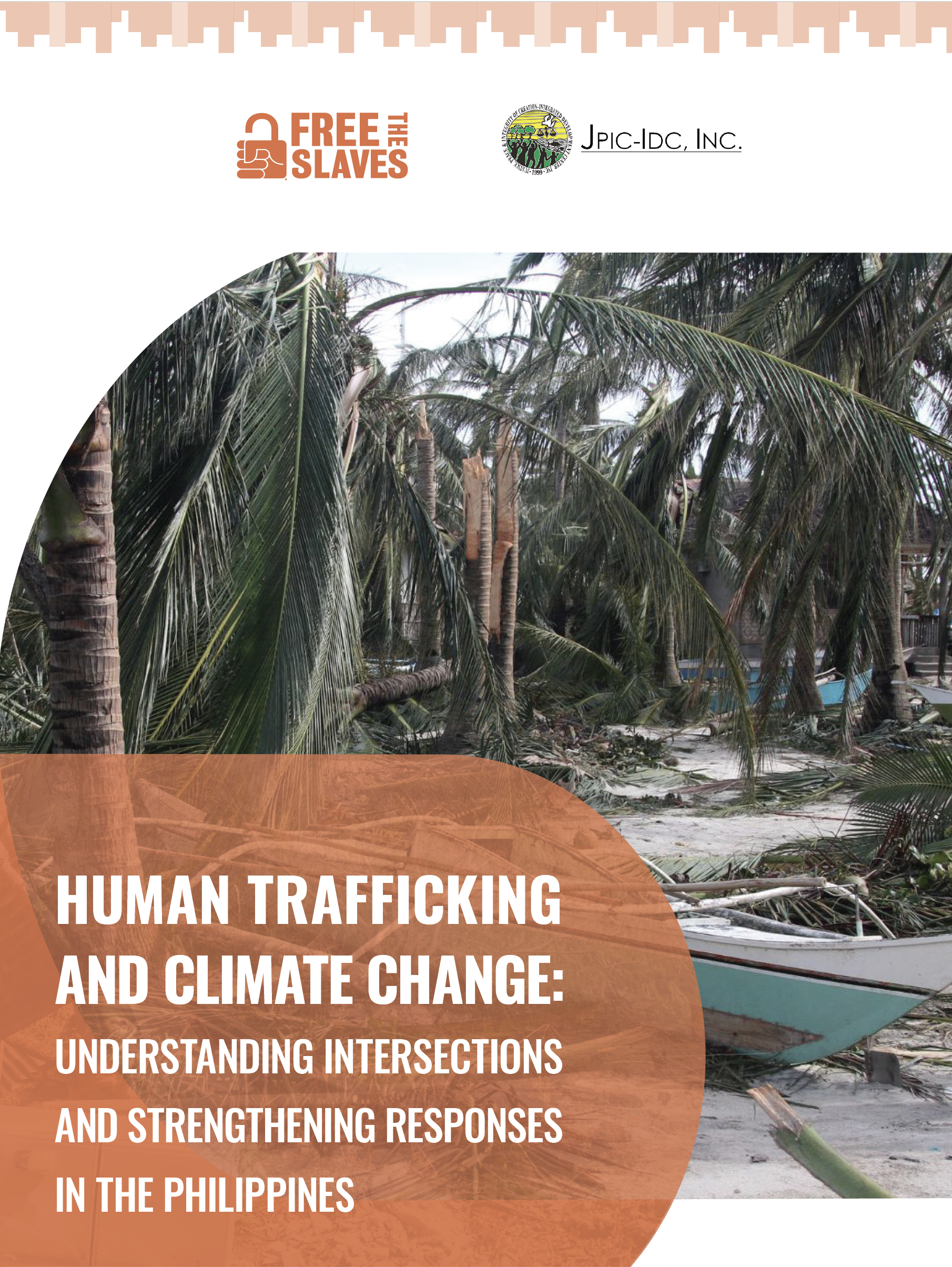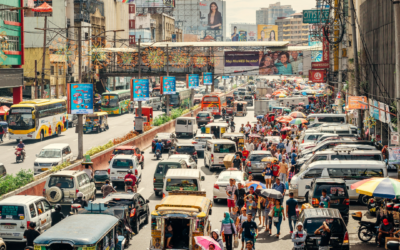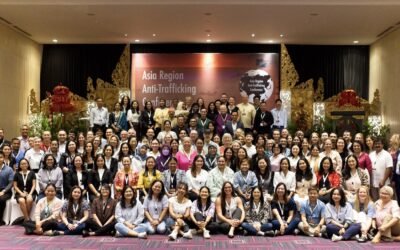Human trafficking is a phenomenon determined by factors such as conflicts, food and water
insecurity, corruption, lack of access to education, inadequate healthcare, poverty, gender
inequality, racial inequality, human rights violations, migration and displacement, and
harmful cultural norms and practices. However, it is increasingly recognized that climate
change also contributes to (and is contributed by) human trafficking.
To shed light on the reality of human trafficking in climate change-affected communities,
Free the Slaves and its local Filipino partner JPIC-IDC conducted an extensive study in the
Philippines, in the regions of Eastern Visayas and Caraga. Over the past decade, in fact,
environmental hazards have occurred with greater frequency and severity in Eastern Visayas
and Caraga. Among the slow-onset and rapid-onset hazards reported in those regions are
heavy rainfall, floods, droughts, rising temperatures, sea level rise, typhoons, earthquakes,
landslides, tsunamis, and tornadoes. These hazards often trigger one another and contribute to
an environment characterized by multiple shocks.
The findings from the two selected regions suggest that in communities without adequate predisaster
preparation strategies and post-disaster recovery mechanisms, climate change-related
hazards lead to conditions of multi-dimensional vulnerability. Most notably, our research
found that hazard-affected communities are driven into (extreme) poverty, unemployment,
health insecurity, food insecurity, lack of education, displacement, migration, and
psychological distress.
Under these circumstances of vulnerability, communities become exposed to the risk of
exploitation by human traffickers. Exploitation can take different forms, but in Eastern
Visayas and Caraga it is mostly labor trafficking and forced labor, child hazardous labor,
sexual trafficking, commercial sexual exploitation of children (CSEC), and online sexual
exploitation of children (OSEC). Moreover, it is noticeable that in the observed communities
these forms of exploitation are further facilitated by corruption, weak enforcement of antitrafficking
law, gender-based discrimination, class inequalities, and harmful cultural norms,
especially when it comes to child exploitation as a strategy to cope with poverty.
Recognizing that natural hazards heighten the vulnerability of individuals and communities to
exploitation by human traffickers, actions that address climate change-related vulnerabilities
become a much-needed strategy to end the conditions that allow human trafficking to exist.
In other words, building on the findings of this report that point to a connection between
vulnerability to climate change and vulnerability to modern slavery, we suggest that actions
capable of strengthening communities’ resilience vis-à-vis the adverse impact of climate
change is fundamental to ultimately strengthen communities’ resilience to human
trafficking.
Learn more about the research from international experts on the recorded webinar below.
Click the links below to download the research reports.




